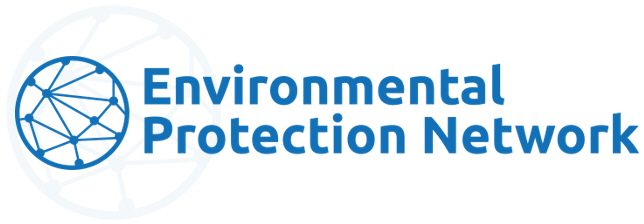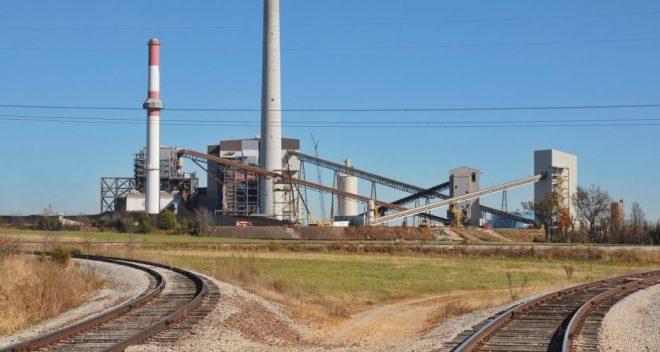EPN In Action March-April 2022
Welcome to your EPN In Action newsletter
Highlights
-
EPN submitted comments on EPA’s draft revision to the risk determination for the chemical Pigment Violet 29 (PV29) issued under the Toxic Substances Control Act (TSCA). EPN also submitted comments on EPA’s proposal to extend the deadline for revised restricted use pesticides (RUPs) certification plans by two years to meet the updated federal standard.
-
EPN submitted comments on EPA’s Draft Strategy to Reduce Lead Exposures and Disparities in U.S. Communities, which proposes to further reduce lead exposures, particularly in communities with environmental justice concerns.
-
EPN presented testimony at a virtual public hearing on EPA’s proposal to set new, more stringent standards to reduce pollution from heavy-duty vehicles and engines starting in model year (MY) 2027. In addition, EPN submitted comments on EPA’s proposal to restore the determination that it is “appropriate and necessary” to curb releases of mercury, arsenic, and other hazardous air pollutants (HAPs) from coal- and oil-fired power plants under the Mercury and Air Toxics Standards (MATS).
EPN Announcements
-
EPN is pleased to welcome Community Outreach and Development Associate Kya Williams and Communications and Operations Coordinator Steve Fantes.
-
EPN and the EPA Alumni Association hosted the first in a series of roundtable discussions with students from Prairie View A&M University, a historically Black university in Texas.
-
EPN members were featured in dozens of media outlets and authored several op-eds. EPN continues to provide in-depth, insightful background information to numerous reporters.
-
EPN members provided pro bono technical assistance to low-income communities and communities of color over 30 times in the last two months.
EPN’s Work on Pesticides and Toxics
Pesticides and Toxics in the News
Highly Anticipated EPA Draft Says Formaldehyde Causes Cancer
Linda Birnbaum, former EPA scientist and former Director, National Institute of Environmental Health Sciences, and Bob Sussman, former EPA Deputy Administrator, were quoted in this article discussing EPA’s draft Integrated Risk Information System assessment linking formaldehyde inhalation to multiple forms of cancer.
Calif. Takes First Moves to Limit ‘Erin Brockovich’ Chemical
Betsy Southerland, former Director, Office of Science and Technology, EPA Office of Water, was quoted in this article discussing California’s proposal to set a maximum contaminant level and a trigger level for hexavalent chromium in the state’s drinking water supply.
EPA May Face Thousands of New Lead Cleanups Under Stricter Standards
EPN’s comments on EPA’s draft Lead Strategy were quoted in this article discussing potential agency actions resulting from public comments on the proposed strategy, including the investigation and possible cleanup of half a million parcels and increased funding for lead cleanups and enforcement.
EPN’s Work on Air
Air in the News
How Biden’s Ethanol Order Is Sparking Worries About Pollution
Margo Oge, former Director, EPA Office of Transportation and Air Quality, was quoted in this article discussing the impact President Biden’s waiver allowing the use of E15 ethanol fuel during the summer would have on ozone levels.
California Grapples With Regulation of Known Carcinogen Ethylene Oxide
Tracey Woodruff, Director of the Program on Reproductive Health and the Environment at the University of California, San Francisco, and former EPA senior scientist, was quoted in this article discussing the impact toxic emissions from pollution sources have on surrounding neighborhoods.
EPA Restores California’s Power to Set Tighter Car-Pollution Standards
Jeff Alson, former Senior Engineer and Policy Advisor, EPA Office of Transportation and Air Quality, was quoted in this article about EPA’s decision to rescind the Trump-era withdrawal of the Clean Air Act waiver for California, restoring the state’s ability to set stricter vehicle emissions standards than those set by the federal government.
EPN Member Op-Eds
EPN members penned their own op-eds on scientific integrity, MATS, and clean energy initiatives.
Protecting the Integrity of Federal Science
Betsy Southerland, former Director, Office of Science and Technology, EPA Office of Water, authored this article outlining the requirements for a federal scientific integrity framework and the need for federal science policies and practices to be protected by law.
Mercury From Power Plants: EPA Must Get the Standards Right
Ellen Kurlansky, former Air Policy Analyst and Advisor, EPA Office of Air and Radiation, penned this op-ed supporting EPA’s proposal to reinstate the “appropriate and necessary” finding to regulate hazardous air pollutants emissions from power plants, while also suggesting that an updated benefits analysis of reducing mercury emission would strengthen the rulemaking.
Fossil Fuels Link Russia and Climate Crises
Mustafa Santiago Ali, Vice President at the National Wildlife Administration; former EPA Senior Advisor for Environmental Justice and Community Revitalization; and former EPA Assistant Associate Administrator for Environmental Justice, penned this op-ed discussing the importance of advancing climate and clean energy initiatives to not only reduce the world’s dependence on oil and natural gas but to also minimize Russia’s leverage as the lead supplier of fossil fuels to Europe.
More Examples of EPN in the News
In addition to the articles above, EPN members contributed to a range of articles on topics such as EPA regional administrators, unlined coal ash ponds, and the Superfund national priority list.
Biden’s Oil Country EPA Chief Builds Bridges With GOP, Industry
Stan Meiburg, former Deputy Regional Administrator, EPA Regions 4 and 6, and former EPA Acting Deputy Administrator, was quoted in this article about the work Earthea Vance must accomplish as Regional Administrator for EPA Region 6, which includes the heart of the nation’s oil industry.
Critics Charge EPA Rewriting Coal Ash Closure Rule Via Waiver Denials
EPN’s recent comments on EPA’s coal combustion residual compliance certifications were quoted in this article discussing significant industry pushback on the process the agency is using to deny waivers that permit continued operation of unlined, leaking coal ash ponds.
Lead-tainted Atlanta Neighborhood Becomes Major Superfund Site
Jim Woolford, former Director, EPA Office of Superfund Remediation and Technology Innovation, was quoted and EPN was mentioned in this article about dangerously polluted sites across the US that were recently added to the Superfund National Priority List.






